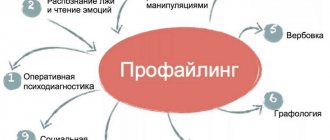Gratitude is such an interesting word. It consists of two words:
- the word "GOOD" AND
- the word "GIVE"
But remember yourself or someone who often uses it? And how often do you hear him in response or do you yourself say the word “THANK YOU”?
I think that most often the answer to these two questions will be “no”, very rarely. But it’s very strange that we don’t speak or pronounce this word in our lives. Why is this word “thank you” not in the vocabulary of many people at all?
We are simply not used to thanking anyone, including ourselves. Thank you sounds much more often than thank you. But the power of gratitude is very great!
Gratitude in Psychology
Psychologists note that people who know how to thank are happier. Gratitude shifts our attention, distracting us from negative thoughts and experiences. Therefore, the practice of gratitude is actively used in psychology.
At the same time, we can feel a sense of gratitude not only towards other people. We know how to simply thank life, God (the Universe, higher powers - who believes in what), and ourselves. Therefore, in psychology, gratitude is not only a feeling, but also a person’s ability to notice everything positive that surrounds him.
Related materials:
Guerlain | MAKE UP FOR EVER | Dolce&Gabbana | Guerlain | gratitude | Make up forever | Dolce & Gabbana | benefit
Articles
- Sun goddess: choosing bronzer July 14, 2015, 00:00
- Colors of summer: colored shadows July 17, 2015, 00:00
- Beauty evolution: Chloë Grace Moretz January 19, 2021, 00:00
Video
- Eye makeup from MAKE UP FOR EVER December 02, 2009, 00:01
- Beauty without problems: correction of redness November 27, 2015, 17:00
- Makeup for the club from Alexander Ben May 24, 2021, 15:00
Gratitude in psychosomatics
Psychosomatics is a direction in medicine and psychology that studies how the psyche and emotions affect the state of our body. It has been proven that negative emotions destroy the body, while positive ones heal.
Gratitude in psychosomatics is one of the most valuable feelings associated with our heart.
In 2015, doctors from the University of California at San Diego conducted an experiment. A group of people with latent heart failure were given a questionnaire to measure how well a person developed a sense of gratitude (the Michael McCullough scale). Those who scored a lot of points, i.e. grateful people, were different:
- less fatigue;
- better sleep;
- lower levels of inflammatory biomarkers.
Therefore, the authors of the study suggest using exercises to develop grateful thinking in the complex treatment of heart disease along with traditional methods.
Personally, I believe in psychosomatics and have more than once noticed how emotions affect my well-being. While studying this topic, I found another interesting study by Martin Seligman, the founder of positive psychology. 1224 adults took part in it. They also took a questionnaire and found that 25% did not feel grateful at all. And only 12% experience it often.
Interestingly, older people experience feelings of gratitude more often than younger people. And women more often than men.
Definition
Some people understand gratitude as just the word “thank you” in response to some kind of attention addressed to them. But many studies show that this is not just a word or action, but an important positive emotion of a person.
Read also: Instagram technical support: how to write
Gratitude is a feeling of deep appreciation for someone or something for something significant and valuable to a person.
That is, this feeling. There are many sayings about this feeling from great people:
- This magic potion for any ailment, dispels anxiety and embraces the soul with kindness, fills the mind with wisdom. Neil Donald Walsh.
- The best thing you can do to change your life is to become a grateful person for everything you have today. Oprah Winfrey.
- We should be grateful to God that He created the world in such a way that everything simple is true, and everything complex is untrue. G. Skovoroda.
- This is the most beautiful of the flowers of the soul. Henry Ward Beecher.
- He who is grateful does not count grievances. Publius Sir.
This feeling has worried many for a long time - why some people give thanks and others don’t.
Gratitude as a high vibration
Vibrations are the energy that we transmit to the world around us. They were identified more than half a century ago by the German psychiatrist Hans Berger, so the concept of vibrations has a scientific basis. He discovered that the gray matter of the brain produces minute vibrations. Depending on the emotion, they differ.
Gratitude is a high vibration. It has a positive effect on the body - relaxes, eliminates stress. Other high frequency emotions: optimism, acceptance, compassion, unconditional love (like a mother for a child).
The writer and author of his own esoteric movement, Vadim Zeland, in his book “Transurfing of Reality” highlighted the law:
The more we give thanks for what we have, the more we attract into our lives.
This means that the focus of attention needs to be switched: to think not about what is not there, but to appreciate what is already there.
Gratitude to others
Few people know how to thank “just like that.” A person smiled at you, and do you often smile back? No.
Sometimes you don’t even want to say the word “thank you”, everyone is tense, tired of instability. And now, sitting at home in quarantine, we’ll completely forget to give thanks!
For example, the famous American psychologist Eric Berne believes that gratitude is a kind of stroking. And who doesn’t like it if they pet him and say something nice? He writes about this in his book “Games People Play.”
You need to be able to “stroking” with words, it’s like playing ping-pong. You for me, I for you. And all this comes from childhood. It happens that people simply don’t know how to do this. They often said about some children from the orphanage that “he is so cruel and unkind.” And he just doesn't know how to do it. The ability to “iron” comes from those closest to you, from parents, and above all, from mother.
The small child was probably rarely caressed, kissed or held. And he got used to the fact that it’s the right thing to do, that’s the way it should be. Ironing should be kept to a minimum. They often think that they will simply “lose their face” if they suddenly show their weakness and say something nice or pet someone.
What do “strokes” give us:
- Stress goes away and we relax
- We smile
- Dislike for another person
- Discomfort from communication
- We receive a gift from a person in the form of pleasant words
- We remember and feel the “warmth” in the chest for a long time
A person’s self-esteem increases from gratitude and words of appreciation. And self-esteem is nothing more than a person’s success and his feeling of happiness from harmony in life.
Why can't I say thank you?
Since gratitude is such a positive feeling, why don’t people sometimes feel it and can’t even say thank you? There are many psychological reasons for this.
Reluctance to remain in debt
When they do something good for us, it seems to us that we are obliged to respond in kind. Especially if we did not ask for the service provided. We feel a lot of pressure. Thoughts bother me: “What should I do now? If I don’t do the same, will they be offended at me?”
This is typical for people with high anxiety, who tend to worry and stress themselves out, analyze everything, and look for hidden motives in others.
Distrust of people
Often the reason for lack of gratitude is distrust of others. It seems that a person does good in order to receive benefit for himself in return. There are several reasons for this opinion:
- negative experiences in the past;
- an attitude passed on from parents to children;
- an example of such behavior in the family.
The underlying fear is that they will do something good and then demand “payment.” Or they will begin to manipulate with guilt: “I have done so much for you, but you cannot help me.”
Also the cause is resentment towards other people, which blocks the feeling of gratitude. In this case, try the practice of letting go of grievances.
Low self-esteem
When a person does not love himself, is not confident in his own abilities and has low self-esteem, he cannot enjoy gifts, kind words and good deeds addressed to him. He feels like he doesn't deserve it.
A person with a heightened sense of guilt accepts benefits with embarrassment. She tries to pay back for the kindness she has done, but she does this not out of gratitude, but to get rid of a painful feeling.
Heightened self-esteem
Inappropriately high self-esteem is the other extreme. These are spoiled people, fed up with attention and love. They do not attach importance to the good deeds of others and the positive things around them. It seems to them that this is how it should be.
A person lives with the feeling that the whole world revolves around him, and therefore is not able to appreciate everything positive that is in his life.
Perfectionism
People with excellent student syndrome are hesitant to express gratitude for compliments, salary increases, bonuses, because they consider their results to be less than ideal and not worthy of praise. They tend to devalue their achievements and cannot understand why they receive any benefits for it.
I also encountered the same problem. At the institute, I was an excellent student and tried to complete assignments perfectly, but I always found flaws in them. When I was given automatic tests, dismissed from classes, and teachers praised me, I got irritated. Their approval seemed inappropriate to me, and I never once felt deep in my heart gratitude for the good attitude of the teachers.
But everything changed when I tried special practices that developed this feeling.
Gratitude for Trouble
Probably, it would never even occur to anyone to thank someone for an evil done, for an insult said or an annoying nuisance. Usually the reaction to these events is diametrically opposite. However, one should not judge hastily. Because it is gratitude that can completely change the course of history.
Alexander Palienko in his interview described this process as follows: when we react to low-frequency manifestations of the world with our high-frequency internal state, we thereby create something like a screen around us, reflecting all the negativity back to where it came from. Everything that contradicts our state, our energy, flies away from us like a ball. Thus, by expressing gratitude internally, and externally doing everything to change the situation that has arisen, we reflect the negative to the source and neutralize the cause of its occurrence.
If we get angry and react in the usual way, then the energy will resonate with that undesirable situation, which means that it will intensify and return back to us in a circle.
That’s why you need to be grateful for both the good and the bad. Thanks for the good, we strengthen this good, and thanks for the bad, we neutralize it.
Learning to give thanks
There are special exercises for those who find it difficult to express gratitude. If it seems to you that there is nothing to thank others for and everything in life is bad, read how to get out of the impasse.
Write a gratitude list
Think about what is good in your life. Do you have something special that other people don't have? Record 5 of these things in a convenient format. For example, in a diary that you carry with you, in notes on your phone. It is important that the list is available to you every day.
There are 20 items on my list. When I learned to give thanks, I read them every morning. First mechanically, then more thoughtfully, trying to feel gratitude.
Keep a Gratitude Journal
It’s easy to say thank you for some serious benefits. But every day many little things happen to us that improve our mood. In the evening you need to try to remember and write them down, even if it seems stupid. Repeat the practice every day.
For example, I was grateful that there was no line at the store and I quickly got home after work. That a passing man smiled and the mood became better. That the bus arrived quickly and I didn’t wait 20 minutes for it, as usual. I wrote down everything that brought me some benefit.
Write a letter of gratitude
The practice is suitable if you want to thank someone, but cannot. For example, you are embarrassed to say words of gratitude or someone important to you is no longer around. It is not necessary to send a letter; writing it will be enough.
- Imagine a person to whom you want to say thank you. Friend, employer, relative, child.
- Remember what good he did to you and write it down.
- Then listen to your feelings and record them. For example: “I am very pleased that you took such care of me. It made me happy."
Try to describe your feelings as thoroughly and broadly as possible, but don’t do it forcefully. If it doesn’t work, then write simply and briefly.
Write such letters to everyone you are grateful to. If you are not shy, hand them to the recipients. It is best to write by hand, but you can also do this on your phone by simply sending an important message in the messenger.
Give thanks even for the little things
Each person will have their own situations that deserve gratitude. For example, my husband helped around the house. My sister gave me a gift just like that. The subordinate submitted the report on time. The customer stepped into the situation and moved the deadline. I am sure that you can find at least one act for which you will sincerely thank another person.
Are you embarrassed when you have to say something nice out loud? Then I advise you to read the article How to stop being shy.
When you learn to notice the little things and be grateful for them, those around you will begin to delight you even more. They will be pleased to communicate with you and help. It will become easier for them to get into your position. This exchange of pleasantries will bring you a lot of pleasure and you will learn to be grateful. Brian Tracy also spoke about this.
Miracles from gratitude
There is an interesting example from Joe Vitale's book The Secret of Attraction, he describes the power of thanksgiving. The story is very instructive.
Jonathan had pneumonia on both sides, maybe he also had coronavirus then? He took and wrote just one sentence on paper and hung it all over the house. He stubbornly looked at it, walked around it and simply repeated it, because he simply had no other choice. And you will be surprised, but within 24 hours his illness subsided. What was this phrase? As you guessed, he thanked the Lord God: “Thank you, Lord, for all the blessings that I have and for all the blessings that I will receive.”
Gratitude is always a flow of energy. And so this is how gratitude can change a life.
You can thank:
- Lord God
- Universe
- people around
- everyone you want to thank yourself
And give thanks for both the bad and the good. Thanks for the good, we strengthen it, and thanks for the bad, we neutralize it.
How does the power of gratitude work?
If you give thanks, then your positive energy goes into the Universe. And the principle of operation is very simple:
- What you give to the Universe is what you receive in return.
- And the more you give, the more you receive
According to the law of attraction, “what we are grateful for in life, what we see and notice more often, we attract.”
How to learn to give thanks
A good practice that many psychologists offer: a gratitude journal . Of course, at first it is better to make it a rule for yourself - every day before going to bed, write down 10 thanks for the day in a notebook. For some, this task causes stupor after the fifth point, for others after the eighth. It’s rare that someone can write ten thanks every day for a month easily and freely. Because we are used to seeing more negativity around us. Because we pay too much attention to the events that made us worry and worry than to the ones that made us smile or feel warmth in our hearts.
So, just try: write down 10 gratitude messages every day for 30 days. The universe, parents, spouses, children, friends, casual acquaintances, a store clerk - to anyone and for anything. But your gratitude must be sincere. Coming from the heart.
Of course, if you're really lazy, you can make this list in your head. But it’s better to prescribe it the first time. And then - the next day - re-read. To remember how much good things happened to you yesterday. And to see that today you had at least ten good moments.
Over time, you may want to write down more than ten thanks - write. At least twenty-five, at least forty-six. Write as many cases worthy of a “thank you” in a day. But never less than ten. Even on the most difficult and unbearable days - when it will be especially difficult. Especially when everything around seems blacker than night and when “eyes would not see and ears would not hear” - look for reasons to be grateful. Even when you don’t want to live, you need to write down exactly ten. At least for sunny weather and the opportunity to breathe.
The second stage is when you can easily “collect” more than 10 thanks per day, and you always notice the slightest reasons to say “Thank you” to people or events, or the Universe. Sit down and write down 100 thanks for life. Yes Yes. At first glance this seems very simple. And it will be very great if you can write these hundred “thank yous” in a day. In fact, there is a lot to think about here.
If you have already done similar practices before, you have probably noticed that over time, even the darkest days gradually become not pitch black for you, but gray. And this is already a big shift in your consciousness and, consequently, in your life, which will take a course for the better. As long as you remember to broadcast the energy of gratitude into the Universe.
And we thank you for your attention! ♥
Tags: harmonypeaceheartconsciousnessenergy
Three levels of gratitude
The universe consists of energy, so by sending words of gratitude with words, thoughts, emotions, we attract similar things (Law of Attraction). Be grateful and the Universe will reward you even more.
There are three levels of gratitude, each of which creates its own energy and strength according to the “law of attraction”.
First level.
This is the easiest level of gratitude. It consists of being grateful for all the good things we receive. We thank the Universe for all the good events that happen in our lives. We thank other people for specific actions or gifts on their part.
Similar article: How to manipulate people - techniques and tips
Second level.
This is gratitude for the little noticeable things and events that make up our lives. It can be difficult to understand what exactly and why you need to thank? For example, you bought yourself a new dress. Thank yourself that you are not a poor person, you can work and buy yourself new things.
At this level, it is important to learn to see everyday things in a positive way and thank the Universe for the summer rain on a hot day, for the warm rays of the sun in the winter months. It is important to accept each new day with gratitude and thank yourself in the evening for the happy moments that happened to you during the day.
Third level.
Thanks for mistakes. At the third level, you need to learn to be grateful for sorrows, misfortunes and insults. This is the most difficult level because it is difficult to draw a positive parallel between an insult or misfortune and gratitude.
What can you thank yourself and the Universe for in this case? For the experience, the life lesson that life has taught you. You can also thank the people who brought in negative feelings and experiences for showing you your secret, hidden features of your essence.
Practice Gratitude
“Gratitude Diary”
We all know what a personal diary is. This is a small notebook where you can write down your experiences or pleasant moments in life.
I recommend starting a Gratitude Journal for you. Buy a beautiful notebook or notepad. Pleasant to look and feel.
And make it a rule every day
Write in it what you are grateful for. This is a diary, so we write in it every day.
You can do this in the morning, or you can do it in the evening, when the day has already passed. When can you say thank you for a pleasant day? Even if the day didn't go well, I'm sure there was at least something in it that was pleasant for you or brought you joy.
This is what you should be grateful for. Believe me, as soon as you begin to notice the good in your life and sincerely thank for it, more and more things for which you will be grateful will appear in your life.
On the subject: How to improve relationships in a couple: writing a gratitude diary
“Morning Gratitude”
Another very simple gratitude practice. Here you can do without a diary. It is enough just to mentally thank the Universe for everything wonderful that is in your life after you wake up in the morning.
Yes, you can be grateful even for such little things. Try it and see for yourself how your mood will change to a more positive one.
And then she thanked the Universe for a new and wonderful day that she would live in happiness and joy.
On the subject: Louise Hay: affirmations that change your life
When is the best time to practice gratitude?
It works best for me in the morning, before anything else, or in the evening, before bed. During the day our brain is very active, all processes are activated, it is difficult for me to concentrate. And it’s more problematic to be alone.
Early morning. I do this after meditation, as a continuation of it.
What time do you get up in the morning?
Good morning life!
Or before bed. Well, in general, it’s important to find at least five minutes at any time of the day. It is possible both in the morning and in the evening.
I recommend keeping a journal. This is recommended by many and it is very correct. In the evening, write down things to do for the next day, impressions, observations of the day, and gratitude for that day.









